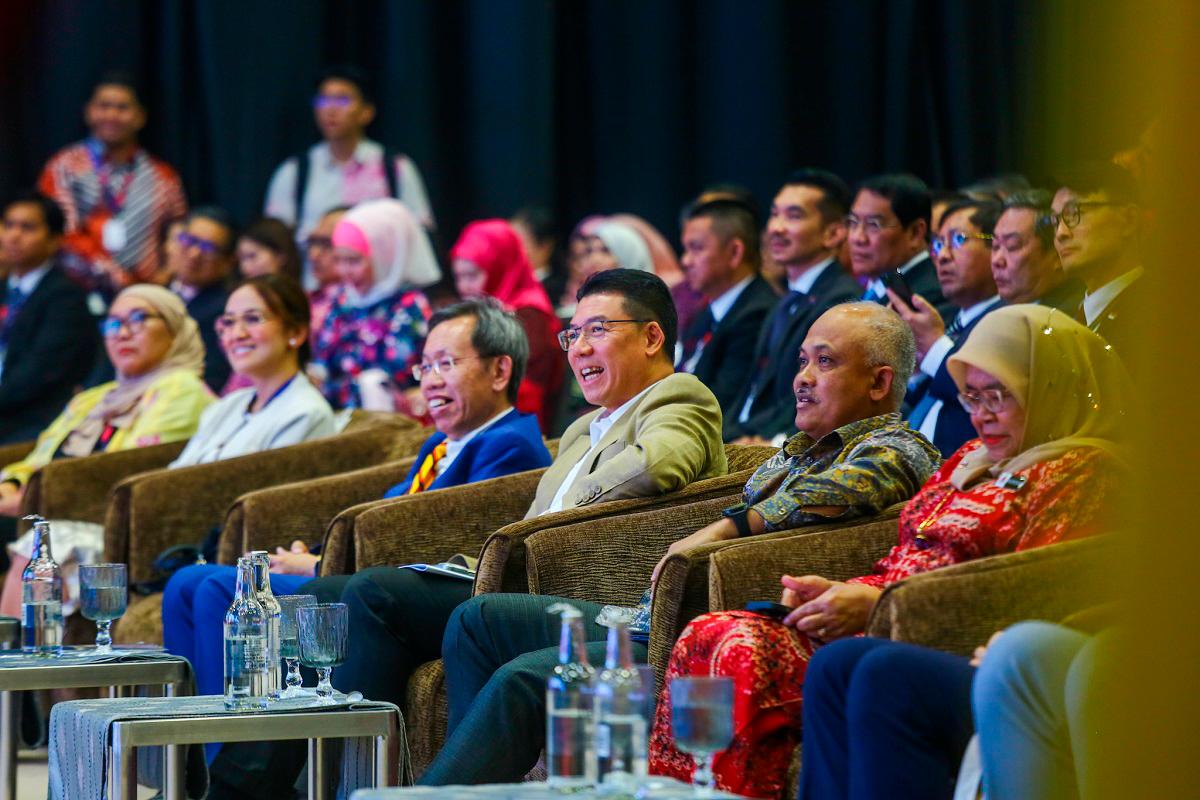KUALA LUMPUR: Malaysia will, for the first time, push to integrate the New Urban Agenda into the United Nations Framework Convention on Climate Change (UNFCCC), a landmark move aimed at ensuring that global environmental policies translate into action at the local level.
Housing and Local Government Minister Nga Kor Ming yesterday launched the Kuala Lumpur Call to Action for the UN Climate Change Conference (COP30), to be presented at the UN climate summit in Belem, Brazil in November.
“This initiative will be the central engine driving our collective efforts.
“I urge everyone to not just participate, but to actively lead and champion this cause. We must ensure that no one and no place is left behind in our urbanising world,” he said at the closing ceremony of the Asean Sustainable Urbanisation Forum (Asuf), Asean Governors and Mayors Forum (AGMF) and Meeting of Governors and Mayors of Asean Capitals (MGMAC) 2025.
The week-long gatherings brought together more than 9,000 participants from across Asean and beyond, culminating in commitments to strengthen cooperation in building sustainable, inclusive and climate-resilient cities.
Nga, who also serves as UN-Habitat Assembly president, said the meetings were proof of Asean’s shared recognition that urbanisation is no longer just the backdrop to development, but “the driving engine of our future.”
“Urban leadership is not a choice, it is a necessity. Local voices are not peripheral, they are pivotal.
“The future of Asean must not be written from the top down, but co-authored by our cities, our communities and our people.”
He added that the region’s collective commitment safeguards the well-being of nearly 700 million people in Asia against challenges such as climate change, housing affordability and urban sprawl.
The following are key outcomes from the forum.
Asuf – Reaffirmed alignment with the Asean Sustainable Urbanisation Strategy and Asean Community Vision 2045. Malaysia will establish an Asean Smart and Sustainable Centre, led by Urbanice Malaysia, to support innovative, scalable projects and facilitate city-to-city partnerships under the Asean Smart Cities Network.
AGMF – Adopted shared commitments to promote greater inclusion of women and youth in urban governance, reinforcing the importance of bottom-up approaches to sustainability.
MGMAC – Adopted the Joint Communique of MGMAC 2025, agreed to establish a permanent secretariat in Jakarta, formalised the MGMAC City Network, advanced Voluntary Local Reviews and issued a call for international investment at the local level, including from the UN and World Bank.
“These milestones are not just agreements on paper, but living commitments to build cities that are sustainable, people-centred and climate-resilient.”
On behalf of the participants, Nga also formally submitted the Kuala Lumpur Sustainable Declaration on Localising Asean Community Vision 2045 as an official input to the 47th Asean Leaders’ Summit in October.
“This declaration sends a message that without action, we risk fracturing our cities and increasing disparity in equity distribution.”
His proposal to integrate the New Urban Agenda into UNFCCC would mark the first time urban priorities are formally embedded within the climate change framework, ensuring that global environmental policies translate into actionable measures for local governments.
He said the Kuala Lumpur Call to Action for COP30 would drive this mission forward and serve as a rallying point for governments, cities and communities ahead of the UN climate talks in Brazil.
The next AGMF and MGMAC would be held in Manila in 2026, while Kuala Lumpur would welcome international visitors for Visit Malaysia 2026.
He also said the gatherings this week are “a testament to the strength of Asean cooperation” and a step toward shaping cities that are “inclusive, innovative, sustainable and united in purpose.”
He added that Malaysia would continue to mobilise its 156 local governments to align climate policies with local development plans, budgeting and on-ground projects, reinforcing its position as a global best practice in multi-level governance.









